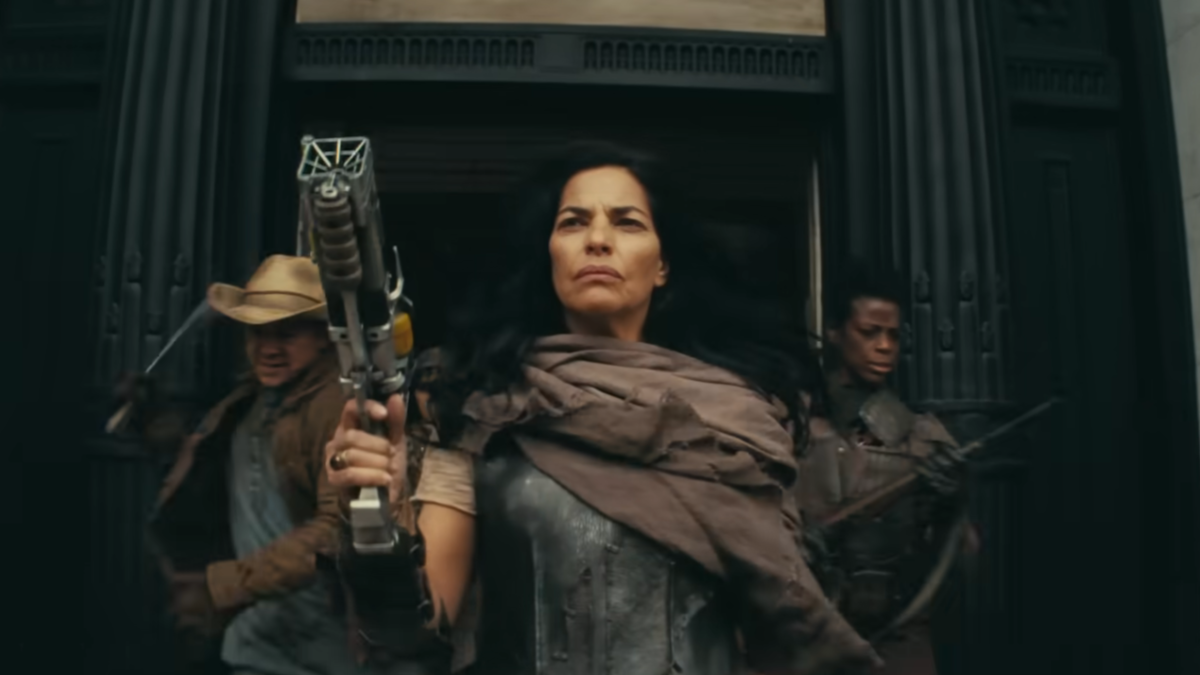There’s been a lot going on at the intersection of gaming and politics recently. SOPA, PIPA, ACTA, and now CISPA, our recent Supreme Court win, and the like have given us all a lot of reason to hope and to remain on our guard.
The first line of defense for many in the gaming community is the Entertainment Consumers Association. If you haven’t heard of the ECA, you should probably educate yourself. Regardless of how you ultimately feel about them, the organization wields a fair amount of political power, and they focus almost exclusively on issues that are relevant to pretty much anyone reading this.
Recently, I had the opportunity to speak with the president of the ECA, Hal Halpin, about a few things that have been getting a lot of attention in the press recently. Astute readers will notice that we already published the interview in the form of a feature. We received enough requests for the full-text Q and A that we decided to go ahead and push that out as well.

We interviewed you a little over four years ago. At the time, the main threat to gamers was a sensationalistic public. The Mass Effect sex scandal was the big thing. Since then we’ve seen some major victories for interactive media in the courts, and some really great progress in winning over the American people. Within the past few months, however, it seems gaming has been slammed on all sides by publishers and politicians. With the rise of SOPA/PIPA, the introduction of warning labels on games and rumors about anti-used games measures for the next generation of consoles, where do you think the greatest threat to our medium lies in the coming future?
The easy answer is with our digital rights, generally. As witnessed with SOPA, PIPA, ACTA and now CISPA, the movement by trade associations which represents the rights of companies in the movie, music and games sectors is persistent and well-funded. We’re very proud of our success with SOPA and PIPA, being one of just a few nonprofits in the coalition, but it’s clear from a recent visit to meet with Congressional legislators and their senior staffers that our digital rights, as consumers, will be our focus, politically.
Conversely, the rise and proliferation of DRM-free digital distribution, indie games and the recent Kickstarter craze have given a lot of gamers and developers some hope for the coming years. What do you think is the most promising development in gaming? Is there anything on the horizon that you can’t wait for?
We’re very excited about the direction the gaming community is heading. It’s a decentralization of power; a shift from the publisher and platform-centric, to the developers and consumers. I don’t believe that that’s a threat to the third or first parties, so much as additional content and channels. Regarding indie games, we just recently created a Chapter dedicated to supporting those interested in becoming a developer and folks who are presently. Josh Hughes of Kaizen Games is heading up that effort and James Portnow of Rainmaker Games and Extra Credits lending his support as both a member of the new chapter, as well as an Advisor – who can act as the elder statesman. Kickstarter is really interesting, conceptually. I love how it empowers consumers to enable developers to create. And the fact that gaming seems to lead the charge for all of the different categories speaks volumes. My concern about Kickstarter generally is that folks understand that donating isn’t the same as investing. Developers have been clear about what you get when you give, but there’s also a possibility that some people will feel that the relationship entitles them to more. Let’s say that X Game is funded, developed and becomes the next Angry Birds, making gobs of money… Will those who’ve felt a part of that process now feel owed a piece of that success? Will lawyers make that case in a class action suit? I’d hope not, but it’s a concern…

Aside from our SCOTUS victory, what was your highlight of the past four years?
The U.S. Supreme Court decision was huge, to be sure, and ECA’s amicus, petition and rally were all exciting to be a part of – it gave consumers an opportunity to help defend the industry and their craft, which is rare. From a policy side of the house… I’m breaking news here, so will probably not be popular with our Marketing department… ECA has engaged in over 60 legislative initiatives across the U.S. and Canada and have been successful every single time. Our members have engaged in issues ranging from bills seeking to add a tax to digital downloads – most recently
here in Connecticut – to ratings and labeling. I attribute that track record to the hard work and dedication of our staff working in concert with our members.
Netroots advocacy is very effective, as evidenced by our involvement in SOPA/PIPA, where our online advocacy tools helped people send over 100,000 letter to Congress in just the first 24 hours! Politicians that we met with on the Hill recently were still talking about how excited they were to see gamers and Gen X and Y constituents get so invested in the process. Picking one of those sixty efforts is tough because on some we were the only entity fighting for gamers and gaming…and the industry by extension… But it’s tough to not choose SOPA/PIPA for just how impactful is was and how awesome to be involved with.
Mark Kern from Red 5 Studios and the League for Gamers has recently gone on record stating that he felt that ESA and more specifically the Video Game Voters Network has let gamers down. Do you agree?
I’m familiar with Red 5, but know very little about either Mark or his nonprofit. My initial reaction to their formation was confusion to be honest. Since ECA exists, is established and influential, why would there be a need for another similar entity that isn’t? Wouldn’t it be far more productive to simply lend support to an org that has full-time dedicated staff and who’ve all come from a decade each of running other nonprofits (IEMA and ESA)? I don’t know… As for Video Game Voters Network, they’ve been publicly called out for being an
astroturfing entity many times,
including Destructoid. It’s a machine that ESA turns on and off when needed, politically. Consumers sign up and provide their information to a database, likely believing that they’re joining a nonprofit that represents gamers and our rights. But an ESA staffer only flicks the switch on when the rights in question align with their own interests. That stopped being speculation and became fact during the SOPA/PIPA situation, which is why VGVN’s own members and the endemic press became so upset and concerned. Those feelings have since been dealt with and VGVN goes on, recruiting new members to replace those that left. I’m not sure what else can be done about it, as astroturfing isn’t illegal yet.
What will the role of the ECA be, moving forward?
Well, there’s really two sides of the house inside ECA. We’ve talked about the Government Affairs half – which doesn’t normally garner this much coverage, so thank you for that – and the other side of the org is Marketing, which includes
benefits for members, media representation, discounts off of games-related goods and services and supporting our community and social efforts. People join the association generally because of the many perks of membership and the cost for joining can range from zero to twenty dollars per year; zero if it’s underwritten by a partner like
Red Bull did last year, a dollar a year if you have a student or military domain extension, and then tiers up to a normal membership of twenty. So if someone’s spending $60 on a game, X on accessories, Y on rentals…our discounts alone rationalize the cost of dues many times over. We also have non endemic partners such as American Airlines, Zip Car, Avis and Hyatt Hotels, all of which could save a lot of money for someone attending PAX, E3 or Comicon. More real life examples might be: I go out for dinner and drinks and use my Restaurant.com discount, then come home order a game with my Buy.com discount, renew my Xbox Live membership for 20% off, realize that I need a last minute gift for a friend’s birthday and order something awesome from ThinkGeek with my $10 off coupon, and then plug in my Turtle Beach headset – which I scored for 15% off – and text a buddy who’s not online on my Sprint phone, which cost me $50 less with my membership than it did him, without. Sales-ey, yes. But people can and some do save a lot of money.

Given the drama between the gaming press and fans over the Mass Effect 3 ending, do you think there is a widening schism between fans and critics?
No, I think that kind of thing is healthy in the long run. Sometimes the communication of the message isn’t effective, but generally the message itself is. Here’s an example: Hey, your review of X is crap! Versus: Hey I disagree with you about your review of X and here’s why (insert something constructive and maybe even helpful, here). The first message is ignored, but the second is read and likely respected. Same between people who are on one side of a debate with folks on the other side, in a message thread or forums. People respect respect, even if they disagree with your position. Sometimes this is framed as a ‘maturity’ thing, which is incorrect and unkind. It’s an opportunity to show each other and our detractors that we aren’t the negative stereotype and won’t perpetuate it.
I’ve noticed myself becoming annoyed now and then by games that I feel I am forced to defend (i.e. Manhunt 2). Regardless of actual content, they seem to push boundaries just because they can. Do you think any game has “gone too far”?
Well, that’s really an individual question in that it’s a moral and or ethical point of view by which one forms an opinion. Prior to ECA, I ran the retail trade association that represented the leading merchants of entertainment and as such struggled through the ten year onslaught of anti-games and anti-gamer legislation along with the other trade orgs. Where I ended up is by asking the politician or media outlet how they judge which movies or TV shows they believe go too far. Interestingly, Republicans tended to be offended by sexual content, where Democrats abhorred the violence. But what defines ‘too much’ to one person, likely is fine to another. I think that developers should be free to create the art they want, but know that they have a social responsibility to their craft and fans.
Do you think video games and by extension gamers have managed to shed some of their pop-culture stigma?
The negative stereotype, absolutely progress has been made, but there’s clearly a lot more to be done. One of the best things about social, casual and indie games is that they also attract people who wouldn’t self-identify as a gamer. My position last year was: Everyone’s a gamer. We all have and play games in some way shape or form (handhelds, phones, consoles, tablets, computers, kiosks), they’re ubiquitous and they should be. If you asked my wife if she’s a gamer, she’d say no. If you asked her which games are on her iPhone and if she plays them, she’d say yes. What’s changed is perception. People aren’t identifying as a gamer due to the old stereotype…less so every year…they’re not identifying because it’s not a predominant entertainment in their media diet. She may play a game here and there throughout the day, but spends more time reading on her tablet, listening to music or watching TV. The important thing to note is that she is playing games and it is a staple of that diet. My position this year is: Everyone’s a game developer. While not true in the traditional sense, it is becoming so due to user created content. The more tools that are made available, the more the experience of playing and creating are intertwined. We had students from a local middle school in recently and they learned how to build a web page that teaches people who to create a website. Gaming is next.
I have to ask- what is your favorite game?
Ha! Probably still Mario Kart 64. Most anticipated is either Halo 4 or Assassin’s Creed 3 for me. You?
Is there anything else you’d like to say before we let you go?
Sure. It’d be great to have your readers check out our site at
http://theeca.com to see for themselves if joining makes sense. For some it may be the discounts, others to support the organization that supports them, while others still may want to join up simply to be a part of the community and help use affect change.
Destructoid is supported by our audience. When you purchase through links on our site, we may earn a small affiliate commission. Learn more







